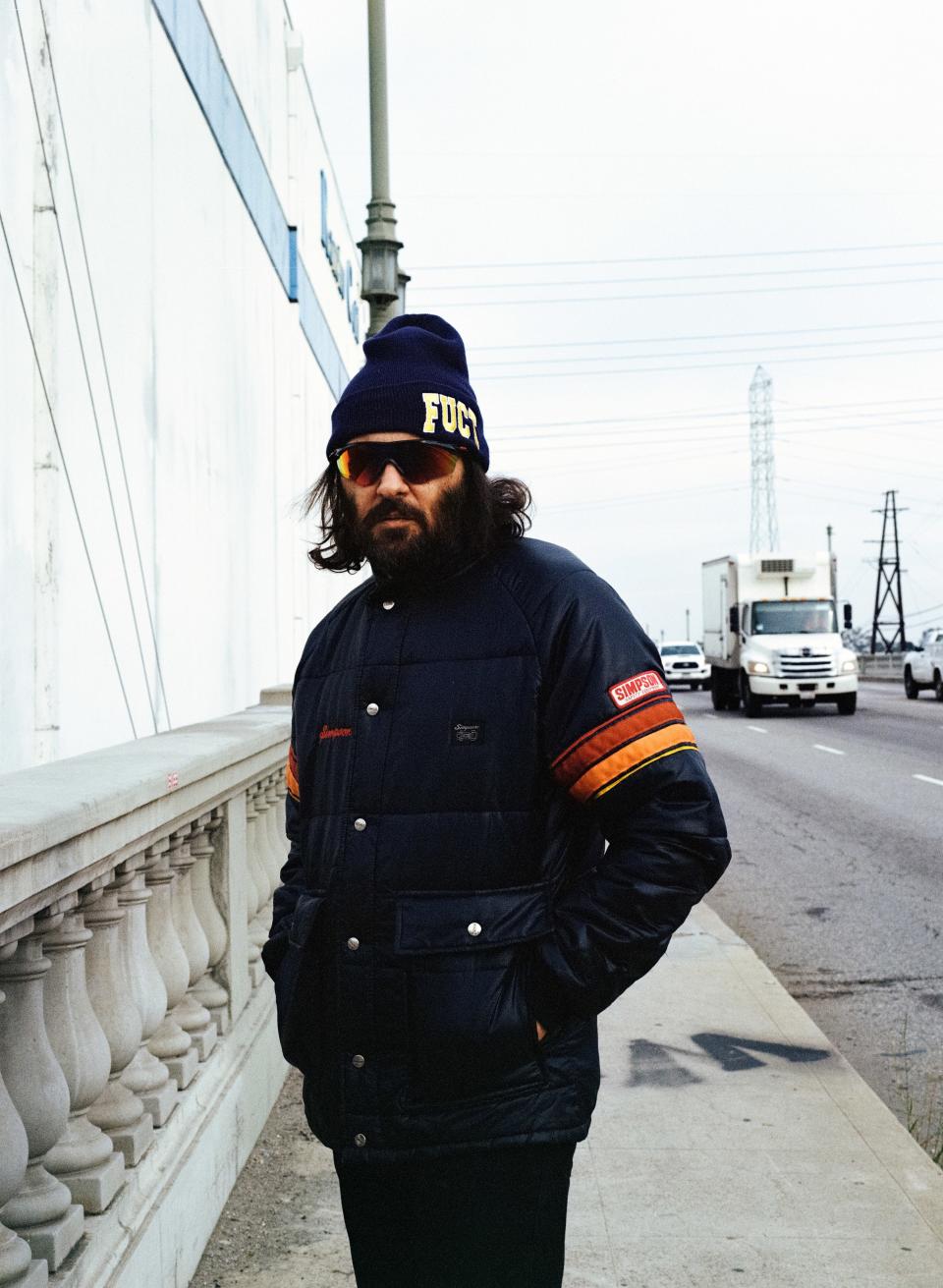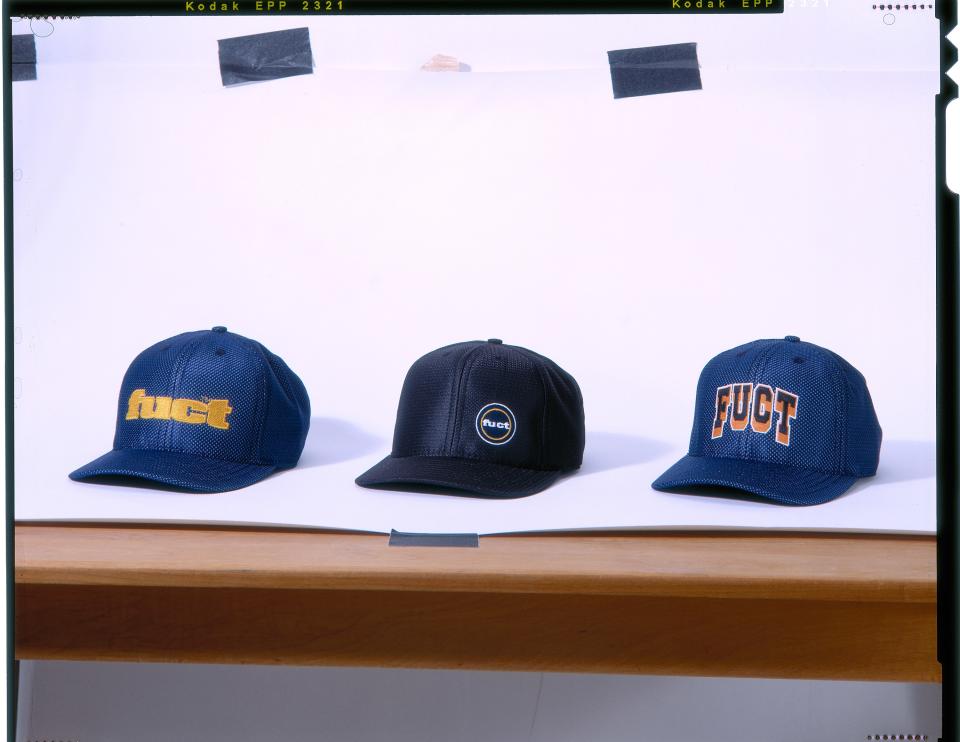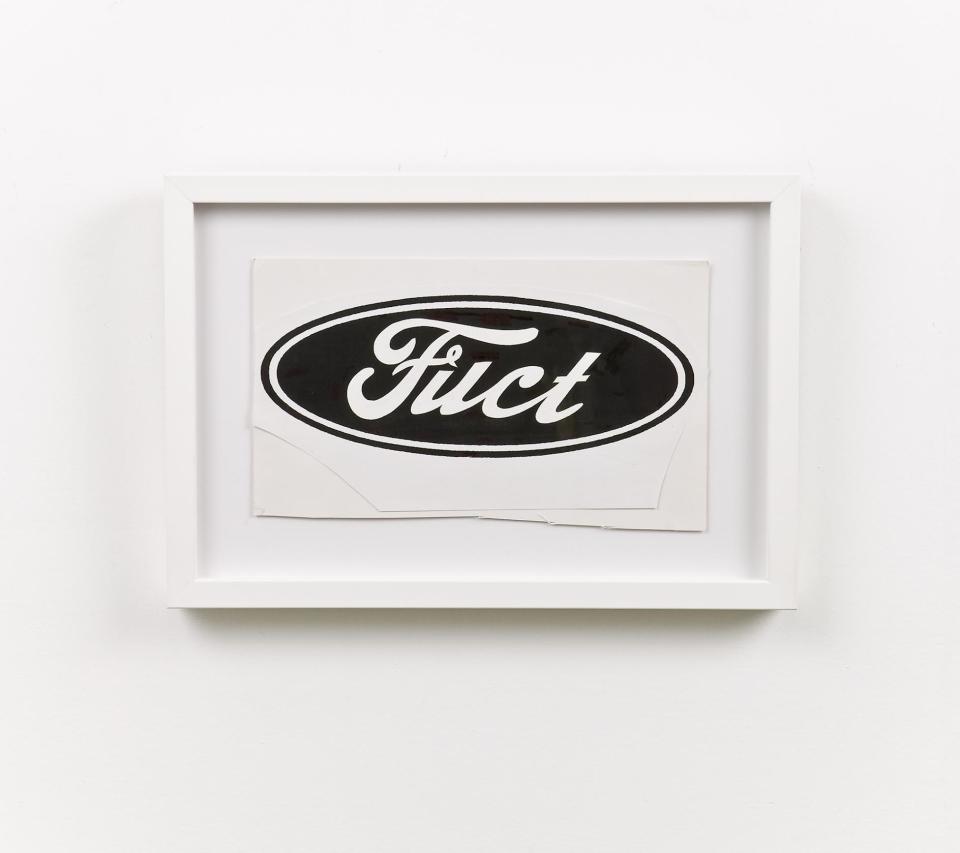Here’s What Happened At Fuct’s Supreme Court Hearing
If you asked someone with a passing familiarity with streetwear to describe the brand “Fuct,” they would probably say it’s an iconic ’90s skate brand from California. Appearing before the Supreme Court on Monday morning, the Department of Justice’s Deputy Solicitor General Malcolm Stewart described Fuct as “the equivalent of the past participle form of the paradigmatic profane word in our culture.” This somewhat tortured longhand used to refer to the brand elicited a few smirks among the usually solemn justices perched above the packed marble-columned courtroom. And despite the court police ready to shush noisemakers, a few chuckles broke out in the wooden pews as the nine robed justices—and the arguing lawyers—continued to perform linguistic gymnastics to avoid mentioning “Fuct,” the brand at the center of a closely-watched free speech case: Iancu v. Brunetti.

The DOJ’s lawyers were not unfamiliar with The Roberts Court. Respondent Erik Brunetti (Fuct’s founder) and his lawyer, John Sommer, on the other hand, were not the usual suits at the counsel table. Brunetti, the graffiti bomber and skater who started Fuct in 1990, showed up to court in a pair of metallic gold cowboy boots and his signature wide-brimmed felt hat. (Bowing to court etiquette, he took the hat off once inside). Sommer’s day job, meanwhile, is as chief counsel to Stüssy. As Brunetti put it in an Instagram Story posted on his way to D.C., the case could just as well have been called The Heads v. The Feds.
The Feds’ argument? That it is the government’s responsibility to refuse registration of trademarks that consist of “scandalous” material, as exemplified by Fuct. Brunetti counters that this violates his First Amendment rights to free speech.
As far as clothing-related free speech cases heard by the Supreme Court, Iancu v. Brunetti is lower stakes than, say, Cohen v. California (1971), where the court overturned the conviction of Paul Robert Cohen, who had been arrested in a California courthouse for wearing a jacket that said “Fuck the Draft.” Still, it made for curious courtroom theater, where nobody uttered the brand name at the heart of the case. And if the government’s appeal is rejected, Brunetti could have broad implications for the kinds of brand names that receive trademark protection.
The possibility of an offensive-trademark free-for-all appeared to be a main concern for Chief Justice Roberts, Justice Alito, and Justice Breyer, all of whom appeared skeptical that the government should have to promote—through federal trademark protection—potentially offensive marks. Justice Breyer, who typically votes with the Court’s liberal-leaning wing, appeared pained at the possibility that opportunists would sweep in to trademark racial slurs, while Justice Alito—along with his fellow conservatives—appeared unconvinced that “Fuct” or its phonetic equivalent represents a point of view, which would afford it protection under the First Amendment.
But the justices reserved some of their most pointed questions for the government, noting that federal application of the law has been woefully inconsistent. During Stewart’s remarks, as Justice Thomas leaned back in his padded leather chair and read from a tiny case material booklet, Justice Gorsuch expressed his skepticism of the government’s ability to define a rational line of scandalousness, noting that the US Patent and Trademark Office’s track record of approvals was like the “flip of a coin.” As a court artist in the press seats sketched Brunetti’s black beard and shoulder-length hair, Justice Gorsuch occasionally glanced around as if to ask, What are we doing here? Justice Kagan asked that same question a short while later when trying to determine what exactly the government wanted them to do with the imperfect law, if it wasn’t to be overturned.

While Supreme’s global trademark battle against the recent spate of “legal fake” brands has received widespread attention, Brunetti has been quietly attempting to register Fuct for decades. Though “Fuct” has come to stand for “Friends U Can’t Trust,” Brunetti told GQ in January that he initially conceived of the name as a gag. “I thought it would be interesting to have a brand that was pronounced phonetically as f-u-c-k-e-d, but was spelled ‘Fuct’ and presented in a very corporate way,” he said. As skateboarding rose to national prominence in the ’90s, Fuct defined the sport’s early-streetwear uniform, dressing the nascent counterculture in baggy pants and tees that were designed to provoke and offend. (Many of those tees, ironically, riffed on trademarked corporate logos.)
Brunetti’s concerted legal effort has been underway since 2011, when he attempted to register Fuct with the US Patent and Trademark Office. The USPTO cited the “scandalous” clause of the Truman-era Lanham Act in denying his application. Brunetti appealed, and received a break in 2017, when the Supreme Court unanimously ruled in Matal v. Tam that a neighboring clause applying to “disparaging” marks was unconstitutional. Based on Tam’s unanimous ruling, the US Court of Appeals for the Federal Circuit determined that Brunetti should be allowed his trademark, and after the government appealed that decision, the Supreme Court subsequently agreed to hear the case.
If it was bizarre to see the justices dance around profanity—“Most people know what words we're talking about,” noted a slightly flummoxed Justice Breyer about 30 minutes in—it was even stranger to watch the largely septuagenarian group wrap their heads around the millennial phenomenon that is streetwear. During Sommer’s argument, Chief Justice Roberts mused that “The product isn’t going to be in Wal-Mart, but it is going to be on people walking through the mall.” (Reached after the case, Brunetti had this to say: “I’ve never seen anybody in a mall wearing [Fuct]. In his mind, I guess that’s how he imagines it.”) Justice Kavanaugh hypothesized that a Fuct trademark would lead to the brand splashing advertisements on the sides of buses, though Brunetti says a win will instead allow him to sue eBay and Amazon to force them to take down counterfeit Fuct product.

But if a broad coalition of justices rule in favor of Brunetti, as is expected by legal experts and courtwatchers, the majority’s opinion will benefit from Justice Ginsburg’s apparent familiarity with the streetwear world. The 86-year-old liberal icon appeared much more familiar with Fuct than the rest of the court when she sharply questioned Stewart about how the government can determine that a substantial percentage of the public finds a word offensive. “What would happen if you took a sample of 20-year-olds?” she asked in her Brooklyn accent. She further suggested that nobody buying Fuct T-shirts was going to be offended by the brand name. “Suppose in the niche market that these goods are targeting, the name is mainstream,” she said. “These goods, as I understand it, are meant to attract a particular market, and if we concentrate on that market the word is mainstream.” Ginsburg also noted the contradiction in the USPTO’s rejections of marks for being both too scandalous and also too similar to existing trademarks: presumably, it’s got to be one or the other. (Go off!)
Brunetti was certainly taken with Ginsburg’s line of questioning. “I could tell by her remarks that she understood the brand, 100%,” he said. “I'm pretty sure she researched it. She also understood the demographic. I was very impressed with what she said.”
The final ruling will be handed down this summer. As part of his legal campaign, Brunetti recently unveiled a new Fuct graphic: Fuct is free speech. Free speech is Fuct™. After the arguments wrapped, I asked Brunetti if he was planning on putting his Supreme Court slogan on a T-shirt—and whether, if he wins, he would send one to Justice Ginsburg. “We will,” he laughed. “Absolutely."

